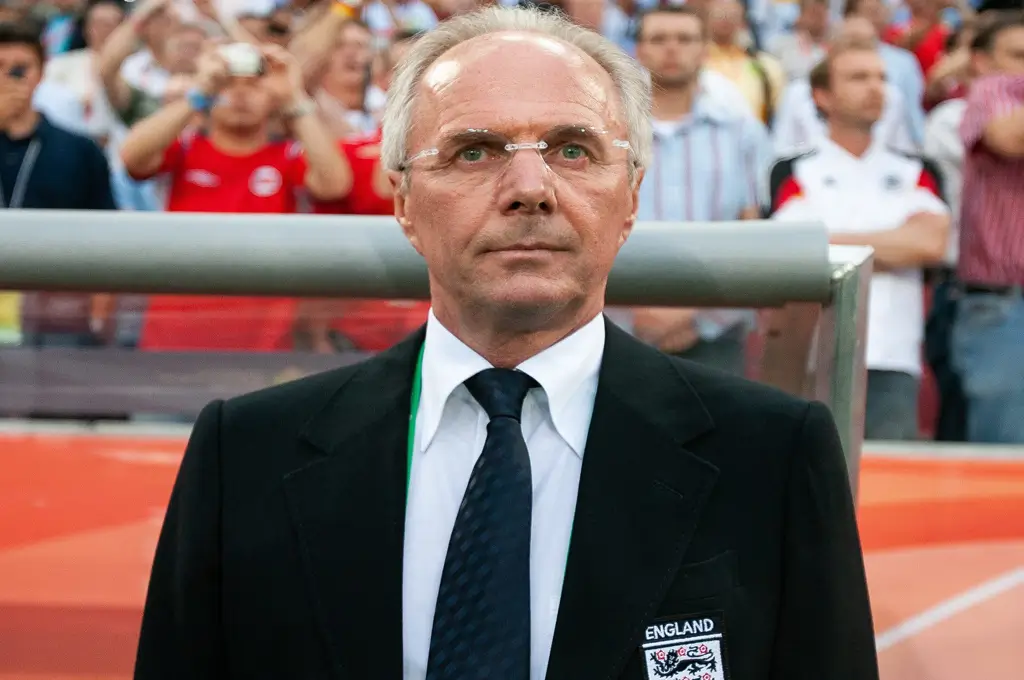Table of Contents
Eriksson Passes Away At 76
The football world mourns the loss of Sven-Goran Eriksson, who passed away at 76 after a courageous battle with terminal cancer. Known as the first foreign manager of England’s national team, Eriksson’s career was filled with triumphs, but also with regrets and personal challenges that shaped his legacy. His passing marks the end of an era, leaving behind a storied career that spanned decades and continents.
A Managerial Career Filled with Success
Sven-Goran Eriksson’s rise in football management was nothing short of extraordinary. After a brief playing career in Sweden, Eriksson found his true calling in coaching. He started with Degerfors and Goteborg, quickly making a name for himself. His success at Goteborg, particularly winning the 1981/82 UEFA Cup, led to his first major role at Benfica. Over two seasons, he won two league titles, laying the foundation for his reputation as one of Europe’s top managers.
Eriksson’s career continued to flourish with high-profile stints at Roma, Fiorentina, Sampdoria, Lazio, and a return to Benfica. His work with Lazio, where he managed from 1997 to 2001, solidified his status, eventually leading to his historic appointment as the first foreign manager of the England national team in 2001.
England’s ‘Golden Generation’ and Missed Opportunities
Eriksson’s tenure as England manager was both celebrated and criticized. He took charge of the national team during a time when expectations were sky-high, with a squad often referred to as the “Golden Generation.” Stars like David Beckham, Steven Gerrard, and Wayne Rooney were at their peak, and Eriksson led them to the quarter-finals of the 2002 and 2006 World Cups, as well as Euro 2004. Despite the talent at his disposal, England fell short of glory, exiting at the quarter-final stage in all three tournaments. These near-misses remained a significant source of regret for Eriksson, who had hoped to achieve more with such a talented group.
One of Eriksson’s long-held dreams was to manage Liverpool, a club he deeply admired. Though this ambition was never realized in a professional capacity, Liverpool granted Eriksson the chance to manage a legends match at Anfield in March 2024, fulfilling a personal wish. The experience was one of his most cherished memories, as the Anfield crowd’s moving rendition of “You’ll Never Walk Alone” brought him to tears.
Personal Challenges and Public Scrutiny
Eriksson’s career was often overshadowed by his personal life, which frequently made headlines. His relationships, particularly with socialite lawyer Nancy Dell’Olio, and his affairs with TV presenter Ulrika Jonsson and FA secretary Faria Alam, were the subject of intense media scrutiny. These distractions added to the pressure he faced as England’s manager, further complicating an already challenging role.
Final Reflections and Legacy
In January 2024, Eriksson revealed that he had been diagnosed with terminal pancreatic cancer. Despite the devastating news, he faced his illness with remarkable calm and dignity. His final public appearance in a Prime Video documentary released in August 2024 provided a poignant insight into his reflections on life, death, and his career. In a heartfelt message, Eriksson said, “I had a good life. I think we are all scared of the day when we die, but life is about death as well. You have to learn to accept it for what it is. Hopefully, in the end, people will say, yeah, he was a good man, but everyone will not say that.”
He added a final, touching message: “I hope you will remember me as a positive guy trying to do everything he could do. Don’t be sorry; smile. Thank you for everything, coaches, players, and the crowds. It’s been fantastic. Take care of yourself and take care of your life. And live it. Bye.”
A Legacy of Balance Between Triumph and Turmoil
Sven-Goran Eriksson’s legacy is one of balance—between professional triumphs and personal turmoil, between high expectations and the reality of missed opportunities. He was a man who, despite the pressures and challenges, left a lasting impact on football across the globe. His final reflections offer a glimpse into the true character of a man who lived fully, embraced both the highs and lows, and found peace in the end.



